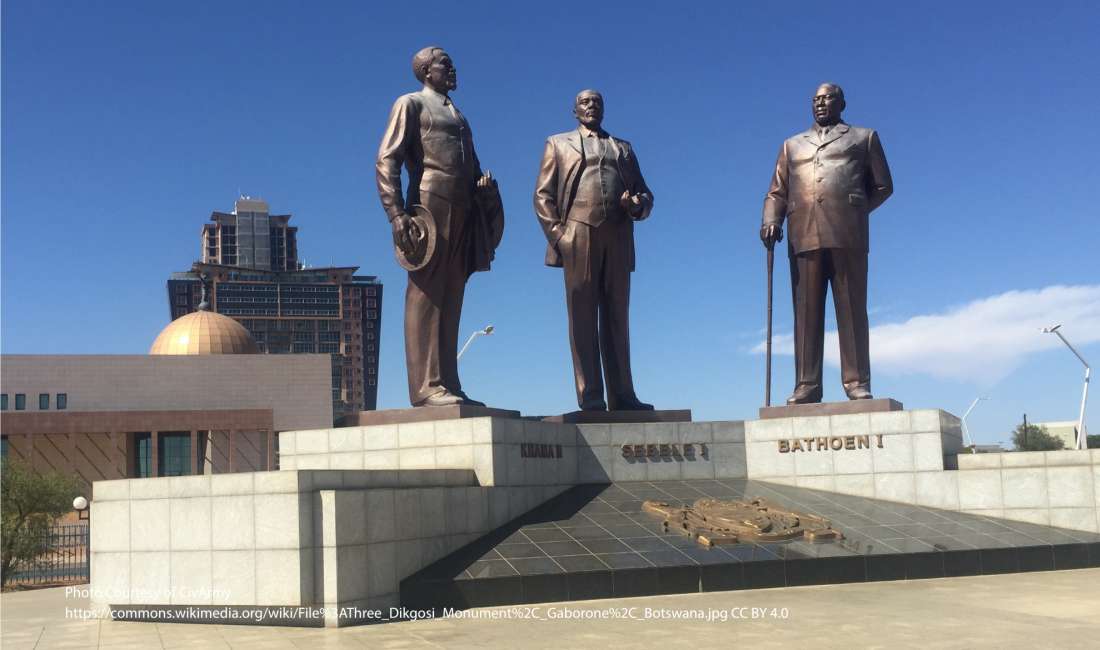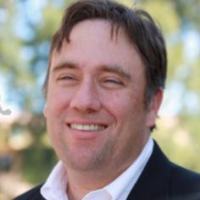Also: History in Bógota; LA Charter News; October Events; Democracy Local (DL) Goes to Africa
Welcome to the monthly newsletter of Democracy Local, a planetary publication of stories, ideas, data, scholarship, and events about everyday people governing themselves.
More about us here. Donations to Democracy International and its International Democracy Community, which hosts our publication, can be made here. Please feel free to sign up here or subscribe to our Substack. Learn more about International Democracy Community events here.
RESILIENT DEMOCRACY IS ALWAYS LOCAL
In focusing on trying to save nations and their democracies, the global community of democratic support and practice is making a fundamental mistake.
They should refocus all their democratic efforts on local governments instead. Cities in particular.
This is because of a fact of human history. Nation-states rarely live very long. And cities live longer than nations.
For example, Rome is eternal. Italy is 164 years old, formed by smaller states (many of them cities). It has been an unstable basket case of substandard governance ever since. Even Joe Mathews’ hometown of Los Angeles, which is seen as a new city, was born in 1781, making it eight years older than the faltering American republic.
China, Egypt and Iran are ancient civilizations, but their modern nation-states are less than 100 years old, with histories full of violence and turmoil.
Yes, the oldest sovereign nation-state in the world dates to 301 AD. But that nation-state is in fact a small city, the Republic of San Marino, with fewer than 40,000 people. It covers an area the size of Pasadena, California.
The world’s oldest cities are Jericho, located in the West Bank and Damascus, in Syria, which have both been continuously inhabited for 12,000 years or so. They’ve survived war and destruction. If you believe the Bible (Joshua 6:24-27), Jericho even endured after the Israelites made the walls tumble down, destroying the city and almost all its inhabitants.
Then they burned the whole city and everything in it, but they put the silver and gold and the articles of bronze and iron into the treasury of the Lord’s house. But Joshua spared Rahab the prostitute, with her family and all who belonged to her, because she hid the men Joshua had sent as spies to Jericho—and she lives among the Israelites to this day.
Seeing all this, strategies for democracy protection worldwide seem backwards. It’s not just the dependence on nations, which always backfires. (One recent example: the global democracy community’s dependence on U.S. funding sources for its money now looks foolish, as Trump destroys the American funding infrastructure).
The use of NGOs and other corporate forms is also foolish. The estimated half-life of publicly trade companies—those firms which do well enough to trade on stock exchanges—is 10.5 years, which means as many firms die in less than 10.5 years as survie beyond it, according to Geoffrey West’s book, Scale: The Universal Laws of Growth, Innovation, Sustainability, and the Pace of Life in Organisms, Cities, Economies, and Companies.
So why does so little democracy support go to the cities and the local level and scale?
Because of two misperceptions. First, democracy supporters perceive that local governments are too inconsistent, that they change too much. That may be true of mayors or city parliaments, but local government staff, and the active citizens who collaborate with them, devote lifetimes to local governance. These local staffers and citizens are the most dependable democratic allies on the face of the earth.
The second misperception is that the local level has less impact, because it’s too small—even though every significant democratic innovation in the world started locally. This includes democracy itself
Sas efcharistó (Thank you), ancient Athens!
If you want to make democracy resilient, you want to put as much democracy as possible in cities.
There’s another reason for this strategy. Global urbanization.
People all over the world have been moving from rural and remote places to cities. By some estimates, 90 percent of humans will be living in cities by the end of this century.
Cities are where democracy’s future will live, too.
IF DEMOCRACY MUST BE DEFENDED, SHOULDN’T IT BE PART OF THE DEFENSE BUDGET?
This smart short essay in the Brussels Times makes a very good suggestion. If Europe is going to spend more on defense, to protect democracy, shouldn’t support for democracy be part of expanded defense budgets?
This isn’t a new idea. In Los Angeles, the Democracy Center—a building for events and collaboration on land in Little Tokyo where Japanese Americans were rounded up for World War II incarceration—was constructed a couple of decades ago with funding from the U.S. Department of Defense budget.
READINGS
The Carnegie Endowment examines the local governance being created now in Syria.
Also from Carnegie: A thoughtful and instructional piece about the need for even the more serious communicators among us to embrace the wild world of our online media environment.
Bogota made history with the world’s first regulations on deliberative assemblies that were designed through a citizen assembly. An action plan was adopted, too. More here, here, and here. Also from Bogota, A good explainer on the local program to make itself more caring and democratic.
Mayor Përparim Rama of Pristina, Kosovo, writes about how cities have some ideas for the United Nations.
The potential of U.S. community foundations and cities to drive democratic innovation, via the National Civic League newsletter. Also from the National Civic Review, reimagining the local public meeting.
LOCAL IDEA OF THE MONTH: HOW TO GET DOCTORS TO YOUR TOWN
Mayor Doug Kobayashi of Colwood, British Columbia, has hit on an intriguingly straightforward way to build the health capacity of his town.
Hire doctors as municipal employees.
Colwood, which is on Vancouver Island, has been struggling with the same problem facing more rural or remote places around the world: how to attract and retain doctors. In Canada, notes this Canadian Broadcasting Corporation story, this means convincing family doctors to come and move their practice there.
But doctors then have to run a small business in a small town, as well as being a doctor. Kobayashi thought it would be better to let doctors be doctors full-time. So Colwood is making them employees of the municipality.
As an employee, we want you to be a doctor 100 per cent of the time. No more administration, we'll look after this. We'll look after hiring your medical office assistants. We will give you a salary, a fixed salary. We will give you benefits, all the benefits.
Building local capacity is never easy, but it can be simpler than we make it.
A HISTORIC ASSEMBLY FOR THE LA CHARTER
A small announcement from Joe Mathews:
“I’m part of a growing coalition of Angelenos seeking to form a civic assembly to become part of reforming the Los Angeles city charter. A commission has been appointed to change the charter, which is L.A.’s constitution. The assembly idea has significant backing, including from city officials. LA is dealing with political corruption, official racism, destructive fires, federal attacks, and a huge Hollywood slump, but there is hope for a different future. More details to come soon.”
WATCHING:
The BBC on how sweltering Singapore (and its urban imitators) became obsessed with creating shade. Also from the BBC: the tiny forests that thrive in cities.
How Kakamega, Kenya, is increasing the public’s role in decision-making.
A University of Canberra event from the summer: “Expanding the demos: how do non-humans have political agency?”
FOR GAMERS: TRUTH, LIES, & DEMOCRACY
On September 28, at 17:00 (Central European Time), the European Capital of Democracy holds the final pitch for the gaming contest, “Truth, Lies & Democracy.” Watching the participants demonstrate their games, then the Jury selects the winners.
Watch here.
EVENTS:
• Sept. 28, 19:00 (Washington DC time): Braver Angels hosts a “fireside chat” between its CEO, Maury Giles and Mónica Guzmán, author of I Never Thought of It That Way. Sign up here.
• Sept 30-Oct. 3: Athens Democracy Forum, Athens.
• Oct. 1-4: 21st Annual International Electoral Awards and Symposium, Gaborone, Botswana. (Democracy Local will be holding a conversation on Friday, Oct. 3, during the symposium.)
• October 1-6: Youth Bridges Europe—Bosnia. An international youth exchange bringing together 60 young people (ages 16–27) from Germany, France, and Bosnia and Herzegovina to explore how democracy, conflict, reconciliation, and memory shape Europe today.
• Oct. 6-7: The UN Forum of Mayors, in Geneva. Details and program here.
• Oct. 6-10: Open Government Partnership Summit, Vitoria-Gasteiz, the Basque Country. More details
• October 13-19: Eisenach, Germany, for the 3rd annual Forum of the Student Network on Future Democracy (SNFD)! https://www.democracy.community/event/student-forum-future-democracy
• October 16-18: World Council, United Cities and Local Governments. Xi’an, China.
HOW DOES YOUR DIGITAL DEMOCRACY TOOL RANK?
Check out People Powered's rankings of digital participation tools.
Also from People Powered, the global democratic hub. Its accelerator launched a “new cohort with 80 teams of policymakers and civil society leaders,” with strong leadership from Argentine cities, to “co-create solutions… on climate change and youth participation.”
NEW BOOK FROM DEMOCRACY LOCAL
Now on sale is the first book from Democracy Local’s publishing house, Ostrich Farm Press. It’s called “U.S. vs Us: Essays from California as It Fights—And Leaves—America.”
It’s available worldwide.
DEMOCRACY TYPE OF THE MONTH: IRISH
Chris Armitage writes at Peace & Planet News about strategies for countering authoritarianism. One of them is “Irish Democracy.”
The Irish called it "Irish Democracy" when they were under British rule, the silent, dogged resistance of millions who simply ignored laws they found illegitimate. Don't protest. Don't riot. Just don't comply….
Make every single act of authoritarian control require physical enforcement, then make that enforcement impossibly expensive and difficult.
NEW FEATURE
Check out Democracy Local's new feature, "Where in the World Is Bruno Kaufmann?"
First stop: the Norway border with Russia.
ASIA DEMOCRACY CHRONICLES
Our partners at Asia Democracy Chronicles continue to produce outstanding analysis and reported essays.
Here are a couple of highlights.
• A brilliant two-part series, from the Philippines Center for Investigative Journalism, on efforts to close the “last coal plant,” which is in a small town on the island of Mindanao
• A report, “Not Our Trash,” on the East Java villages struggling to manage the world’s plastic waste, which is their own.
DEMOCRACY QUOTE OF THE MONTH
“Our democracy is non-negotiable.”
– Brazilian President Luiz Inácio Lula da Silva, responding to U.S. tariffs to prevent the prosecution of former President Jair Bolsonaro
SUGGESTED LINKS TO LOCAL DEMOCRACY RESOURCES AND PARTNERS
International Democracy Community
Federation for Innovation in Democracy-Europe and FIDE North America
United Cities and Local Governments
International Observatory of Participatory Democracy
ASU Participatory Governance Initiative
Taiwan Foundation for Democracy
National Civic League’s Center for Democracy Innovation
Journal of Deliberative Democracy
Local Government Information Unit
The Future of Where
Global Citizens’ Assembly Network (GloCAN),
newDemocracy Foundation (Australia)
National Coalition for Dialogue & Deliberation
University of Canberra (Australia)
Global Democracy Coalition newsletter
Worldwide Alliance for AI and Democracy




